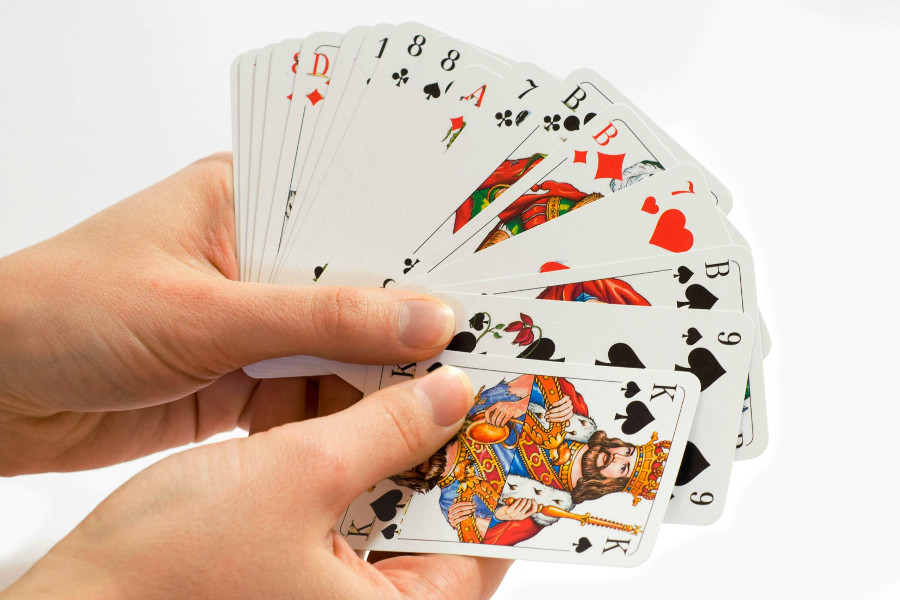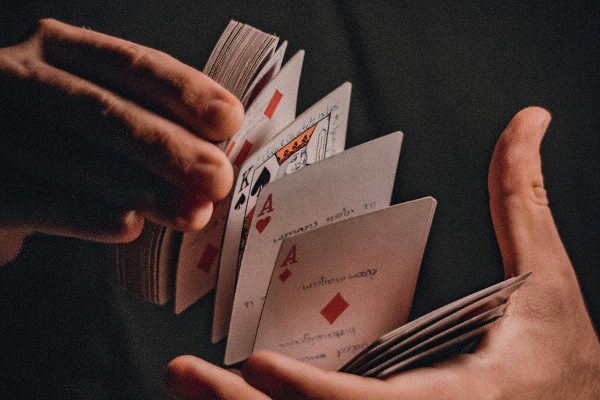How to Learn a New Card Game: Tips, Strategies, and FAQs for Beginners
Learning to play a new card game can feel like a fun challenge, both for beginners and more experienced players. With so many different games out there, it’s important to start with the basics, understand the rules, and practice regularly. In this guide, we’ll walk you through 15 frequently asked questions about learning new card games, offering tips and strategies to help you get started, avoid common mistakes, and become a confident player in no time.

How do I learn to play a new card game?
Learning a new card game isn’t as complicated as it might seem at first. It all starts with the rules. Take your time reading through them and understanding the basic flow of the game. But reading alone won't do the trick – you’ve got to get your hands on those cards and play. Find a few friends, or if you’re feeling brave, dive into an online game. Practice is everything here. The more you play, the more intuitive the game becomes. Before long, what seemed like a jumble of rules will turn into something that feels second nature.
What are the basic rules of most card games?
At their core, most card games revolve around a few key elements: the deck, the players, and the rules of how to play and score. Whether it’s a competitive game or a casual one, you’ll always be dealing with a deck of cards and players taking turns, aiming to reach a particular goal. Some games focus on creating specific card combinations, while others revolve around strategy or luck. In any case, understanding the objective is step one, and learning how the rules guide each phase of play is what sets the foundation for everything that comes after.
How do I choose a card game to learn?
Choosing a card game to learn depends on what you’re looking for. Are you after something quick and simple, or do you want a deeper, more strategic challenge? Start with something straightforward like Go Fish or Crazy Eights if you're just getting your feet wet. These games are perfect for relaxing, easy-going fun. But if you're ready for more strategy, try something like Poker or Rummy, which balance luck with decision-making. And if you're in it for the social fun, you can’t go wrong with Uno. Ultimately, choose something that fits the vibe you're looking for and the group you’re playing with.
How do I improve my skills in a new card game?
Improvement in card games is all about practice and observation. Start by fully understanding the rules, then focus on learning the different strategies players use. Play often – the more rounds you participate in, the more you’ll pick up on small nuances that can make a difference. Watch experienced players and see how they approach each situation. Make note of their strategies, and try them out yourself. But don’t forget that mistakes are part of the process. Learn from them, and soon you’ll be playing like a seasoned pro, ready to outsmart your opponents.
How long does it take to learn a new card game?
How long it takes to learn a new card game really depends on the game itself and how complex it is. For a basic game like Go Fish, you’re looking at just a few minutes to get the hang of it. For something like Poker, you’ll need a little more time to understand the rules, and even more to master the strategies. Generally, after a few practice sessions, you’ll have a solid understanding of the game. But mastering it, understanding the finer points of strategy, could take weeks or even months. It’s all about how much you practice and how deeply you dive into the game.
Are there online tutorials or videos for learning card games?
The internet is full of resources to help you learn card games. YouTube is a goldmine, offering countless tutorial videos where you can watch games being played and explained step by step. There are also websites that provide detailed guides and breakdowns of card games, complete with strategy tips. If you’re more into interactive learning, many apps offer tutorials and even let you play against AI opponents to practice your skills. Watching and playing are key – they reinforce what you learn from the rulebooks and help you get comfortable with the game quickly.
What are some easy card games for beginners?
If you’re new to the world of card games, start with something simple that’s fun but not overwhelming. Go Fish is a classic, easy game to grasp, and Crazy Eights has straightforward rules that will have you playing in no time. Snap is another quick game that’s great for beginners. Once you’re comfortable with those, try Uno, which mixes simplicity with a bit of strategy. These games don’t require deep thinking, making them perfect to ease you into the world of card games before stepping up to more complex challenges like Poker or Rummy.
How do I teach someone else a new card game?
Teaching someone a new card game is all about making it easy and fun. Start by walking them through the objective of the game so they know what they’re trying to accomplish. Next, explain the basic rules, breaking them down into simple steps. Use a few examples to illustrate how turns work, and then dive into a practice round. Keep it light and patient – nobody learns anything when they’re overwhelmed. Give them room to ask questions and encourage them to play at their own pace. A few rounds in, and they’ll be grasping the game as well as you are.
Can I learn card games by just reading the rules?
Reading the rules is definitely important, but it’s only half the battle. While the rulebook gives you a solid foundation, the real learning happens when you start playing. Card games, especially strategic ones, are all about experience. Once you know the rules, dive into a few practice rounds. You'll start noticing things that aren’t obvious at first glance. Things like card combinations, timing, and tactics all become clearer as you play. Reading gets you started, but playing the game is where you truly understand how it works and where you’ll begin to develop your own strategies.
What strategies can I use to win in card games?
Winning at card games isn’t always about getting lucky with the cards you draw. It’s about strategy. Start by learning the basics – knowing when to hold back and when to go all in. Observe the other players and how they play, as this gives you a hint into their strategy. In games like Poker, bluffing can be a powerful tool, but only if you use it at the right moment. Managing your resources, like cards or chips, efficiently is another key to success. Ultimately, each game will have its own strategies, but being aware of what’s going on and making smart decisions will always give you an edge.
How do card games differ in terms of strategy and skill?
Card games come in all shapes and sizes, with different levels of strategy and skill involved. Some games, like Go Fish, are mostly based on luck, requiring little strategy beyond remembering which cards have been played. On the other hand, games like Poker and Bridge demand a high level of skill, requiring players to think ahead, bluff, and analyze the odds. The complexity of the game dictates the level of strategy involved – while some games require quick thinking and decision-making, others might require patience and careful planning. No matter the game, however, skill always plays a role in determining success.
What are the most popular card games to learn?
There’s a huge variety of card games out there, but some have stood the test of time as fan favorites. Poker is a must-learn for anyone interested in strategy and competition, with its many variations offering endless possibilities. Rummy is another classic, blending strategy with luck, and easy enough for beginners to grasp. Bridge is a more complex game that rewards teamwork and skill. And let’s not forget about Solitaire – a solo favorite for when you want to unwind. Other popular games include Hearts, Spades, and the always fun Uno. Each offers something different, so there’s no shortage of games to dive into.
How do I keep track of the score in a card game?
Scoring varies between card games, but generally, it's all about understanding how points are earned and how they’re tallied. In games like Poker, players keep track of their chips, while in games like Rummy, specific card combinations or sets give you points. Some games, like Uno or Hearts, have simple scoring systems that you can track with a pen and paper, while others might require a more complex system. Keeping a score sheet handy or using an app to track scores can help make the process easier. Understanding the scoring system will ensure you’re playing the game correctly and fairly.
What are some common mistakes to avoid when learning a new card game?
When you’re learning a new card game, mistakes are inevitable – and that’s okay! However, there are a few common missteps to be mindful of. One is not fully understanding the rules before starting, which can lead to confusion down the road. Another mistake is not paying attention to the other players, especially in strategy-based games. Learning to watch and adapt to their moves is crucial. Also, don’t be too eager to make big plays or overestimate your hand. Start small, observe, and gradually build up your understanding of the game. Patience is key, and mistakes are your teachers.
Can I play card games by myself or do they require multiple players?
While most card games are designed for multiple players, there are plenty of solo options to enjoy, too. Solitaire is the most famous, with a number of variations to keep you entertained. If you want something a bit more strategic, FreeCell and Spider Solitaire are also great choices. For the multiplayer games, if you don’t have enough people around, many online platforms let you play against computer opponents. It’s a good way to practice your skills and get the feel of the game before challenging human players. So, whether solo or with others, there’s always a card game to fit the occasion.



